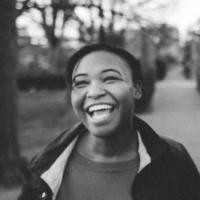During this strange state of the world that we’re living in right now, I’ve noticed that my creativity and motivation in some areas has completely and utterly taken a nosedive. At the beginning of the year, I usually came up with story or writing ideas fairly regularly — pulling together a part of a universe I’d been building, sitting down to edit mine and others’ creative works or being inspired to come up with something completely new. Lately, though, it’s been harder and harder to not only find inspiration, but be open to it on the rare occasions when it strikes.
To combat this lack of creativity and creative motivation, I’ve been dipping into the parts of my imagination that I don’t engage with during waking hours — sometimes my dreams just illustrate things better than I can. Whether it’s a concept that my mind’s been trying to work through for a while or a whole world yet to be explored, the little snippets that I’m able to remember in those first few precious minutes when I wake up can sometimes fuel my creativity for days.
Keep a journal and pen by your bedside to record your dreams.
This was a piece of advice that a previous therapist of mine gave me several years ago. We had started talking about my dreams, mostly recurring ones, in our sessions, but at a certain point it was clear that some of the details of them were missing. So, to see if we could try filling some of them in before we sat down to really examine the potential meanings of those dreams, she encouraged me to put a journal and a pen next to my bedside and use it first thing when I woke up. Not the notes section on my phone or anything electronic, just a pen and a piece of paper. That way, I would still be able to slowly enter the waking world but still manage to hold on to as many details of my dreams as possible before those first few minutes were up and I forgot everything.
Admittedly, given the state of things right now coupled with my heightened anxiety, my dreams have been a little darker lately. Recording them has been a little challenging because they usually involve trying to escape something or someone, either in an area I’m completely unfamiliar with or one I know well, like my childhood home and neighborhood, where the buildings are just slightly warped, which is usually how I know I’m in a dream.
At the end of each week, parse through and pick the ideas that speak the most to you.
Depending on what’s on your mind during any given week, your dreams might be trying to help you work through an issue or call attention to something important that you might be overlooking. For me, this usually manifests itself in the form of themes that arise in my dreams. It may not always be the same exact dream or circumstances, but there’s usually a definitive throughline that connects everything.
For example, in the eight to ten months leading up to me actually making the decision to tell my boss that I was leaving my job at the end of 2018, I had a series of dreams that all had to do with choice. Whether it was about which hallways and staircases to take to get out of my old high school or one of the old shopping malls I used to visit as a kid, or whether or not to scale along the side of a dangerously high mountain, the choice was always the apex of the dream. It was the thing I spent the most time dwelling on before I eventually made the decision to leave. After making the announcement of my departure from my job, the choices in my dreams were made much quicker and easier, as my imagination had moved on to trying to solve the next thing.
See what you can build from what you find.
Though my dreams didn’t quite lead me to the conception of the world I ended up building for my novel–I’d created that world long before quitting my job in 2018–they did help hammer home one of the novel’s most important central themes: Choice. From the very first pages of the story, you get thrown right into the middle of the consequences of a single choice my protagonist, Abigail, makes that sets the tone for the rest of the piece. What I used from my dreams was that constant ruminating over the choice. Though Abigail makes hers almost immediately, she’s left to dwell on it again and again and again. Almost like she’s trapped in a dream until the very real consequences begin to catch up to her. My own helplessness as both a participant and observer in my dreams served as an excellent foundation to build upon the helplessness that the reader is supposed to feel when observing Abigail make hers.
Times are strange and rough these days, and for a multitude of different reasons. But in trying to safeguard your creativity and your imagination, try diving into where your mind goes when it’s not attempting to get through another day of its new normal. You might be able to glean a few lessons or a few story ideas, or just something to get those creative juices flowing again.

Jenn Walton is a writer, editor and storyteller based in Washington, D.C., whose fiction works are housed mainly in the speculative genre. She has completed her first novel project that explores, through the lens of a failing utopia, what happens when society gives in to its fear of the other. She previously wrote for a communications firm where she drafted and edited sponsored and organic content for top-tier academic institutions, Fortune 500 companies and leading philanthropic organizations that has run in The Washington Post, USA Today and the Atlantic. For more from Jenn, please visit her at her website or on Twitter.







